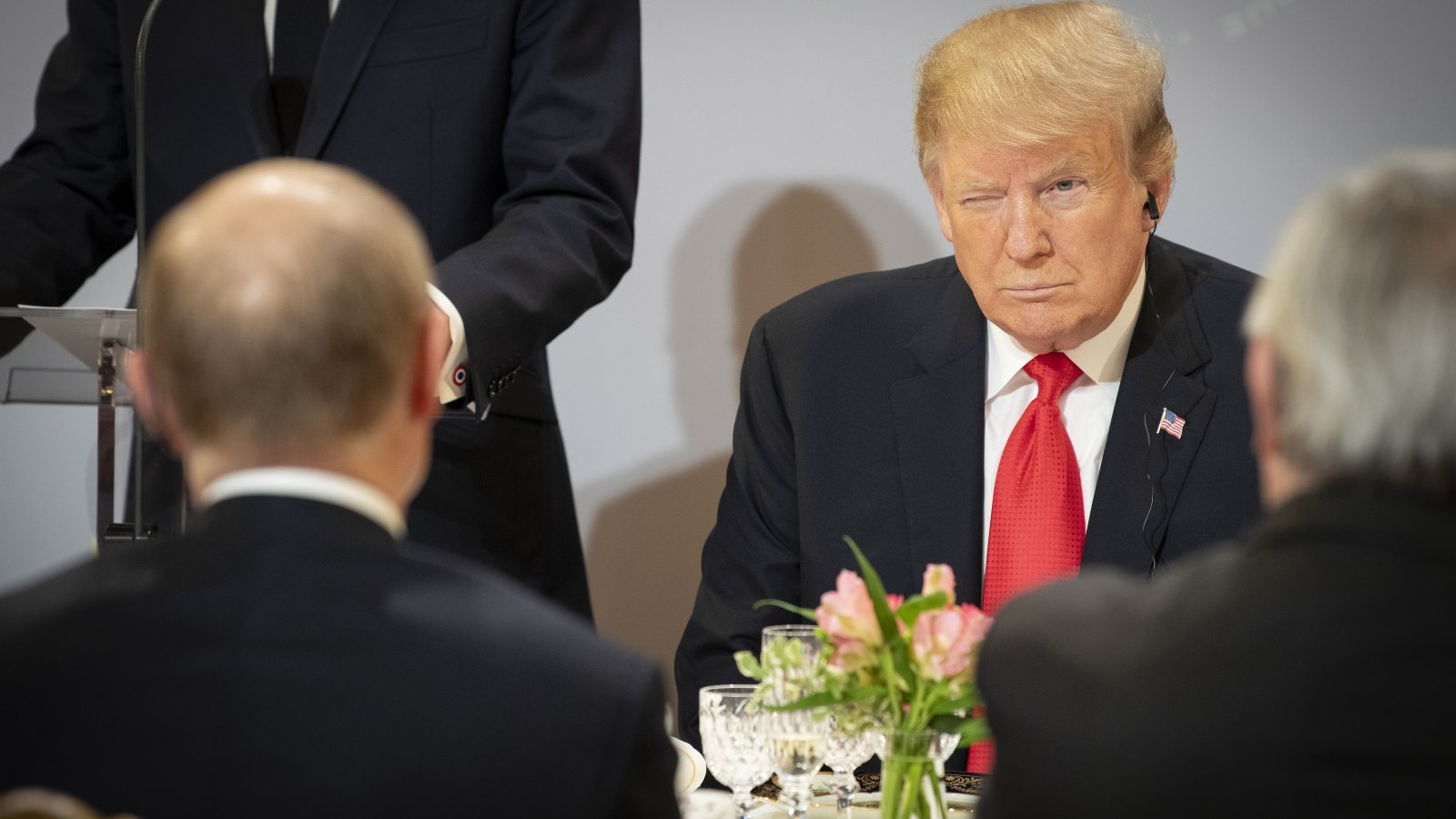
Members of Congress seems to be split down party lines when it comes to how they are reacting to two new explosive revelations – that the FBI opened a counterintelligence inquiry into President Trump due to concerns over the possibility he could be working for Russia and that he intentionally has concealed details of conversations with Vladimir Putin, even from his own administration officials and advisors.
"You know, there's so many questions raised," Democratic Sen. Dick Durbin of Illinois said on ABC's "This Week." "Why is he so chummy with Vladimir Putin, this man who is a former KGB agent, never been a friend to the United States, invaded our allies, threatens us around the world, and tries his damndest to undermine our elections, why is this President Trump's best buddy? I don't get it."
(...)
"When he takes the interpreters notes and wants to destroy them so no one can see what was said in written transcript, you know it raises serious questions about the relationship between this president and Putin," Durbin said.
The President and White House have come out swinging in response, but both have stopped short of outright denying the president is working for Russia. Instead, they have chosen to attack the media and the investigators.
Trump and the White House pushed back on both reports, saying that the president has been much tougher on Russia than his predecessors.
On The Times report, Trump told Fox News host Jeanine Pirro on Saturday that the accusation of him being a Russian agent was "insulting." Pointing to The Post story, Trump said he was not "keeping anything under wraps" and he "couldn't care less" about transcripts of the interview being made public.
"Anybody could have listened to that meeting," he said of the Helsinki meeting that only included Trump, Putin and translators."That meeting is up for grabs."
Senator Mark Warner (D-VA), Vice Chairman of the Senate Intelligence Committee, appeared on CNN Sunday and called the possibility Trump is working for Russia "the defining question of our investigation and' special counsel Robert Mueller's probe."
He added that he found it "curious that throughout that whole summer" when the investigations first began, "you had Vladimir Putin policies almost being parroted by Donald Trump."
While Republicans pointed to sanctions put in place by the Trump administration, Warner said the Treasury Department had been "very slow" at actually implementing them.
On NBC's "Meet the Press," Democratic Sen. Tim Kaine said the FBI "had to have a very deep level of concern about the president" in order to take the step of opening a counterintelligence investigation into whether he had been compromised by the Russians.
Republicans seem downright unconcerned in comparison, and several have taken to defending the president.
Sen. Ted Cruz (R-Texas), a member of the Senate Judiciary Committee, on NBC criticized Washington, D.C.'s, focus on the Mueller investigation as out of touch with the rest of the country.
And Sen. Lindsey Graham (R-S.C.), a close ally of the president, raised doubts about some of the reporting's accuracy.
(...)
Secretary of State Mike Pompeo would not directly address The New York Times story, but in a Sunday interview called it "ludicrous" to consider Trump a national security threat.
(...)
Multiple GOP guests appearing on the Sunday show circuit pointed to the Trump administration’s track record of levying sanctions against Moscow and expelling a number of Russian diplomats from the U.S. as evidence the president is tough on Russia.
Sen. Lindsey Graham (R-S.C.) on “Fox News Sunday” expressed skepticism with the accuracy of the Times report and suggested it provided more proof of bias at the FBI than evidence against Trump.
"I, for one, don’t trust what I read in The New York Times," he said, but added "if this really did happen, Congress needs to know about it."
Cruz said he would consider any corroborated allegations that emerge, but called it "premature" to attempt to subpoena notes of the president's meetings with Putin.
House Minority Leader Kevin McCarthy (R-Calif.) defended Trump's right to keep private the details of his meetings with Putin, suggesting on CBS's "Face the Nation" that doing so was part of the president's strategy to build a relationship with a foreign leader.
"You’ve seen time and time again with sanctions, with other things, President Trump standing up against Russia," Republican Rep. Steve Scalise of Louisiana said on "This Week." "This whole idea of collusion, they’ve investigated this, the Mueller investigation’s gone on for over a year, they found no collusion between Trump and Russia."
'So many questions raised': Lawmakers respond to two bombshell Trump, Russia reports (NBC News)
Republicans seek to temper fallout from latest Russia bombshells (The Hill)